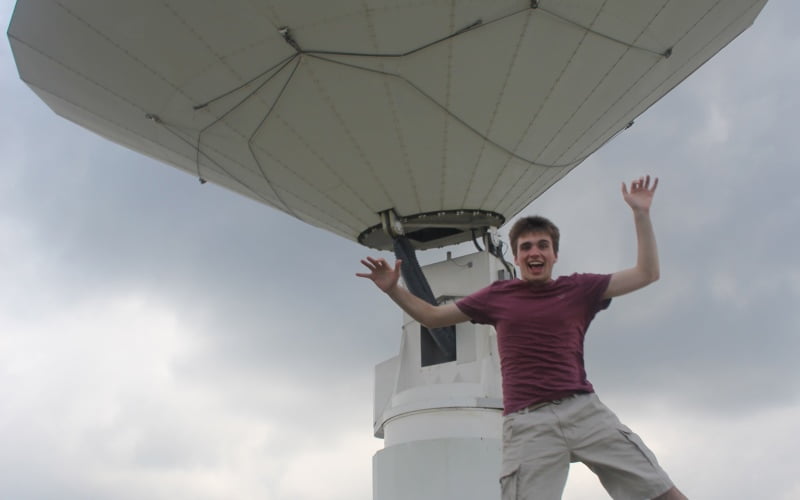Physics Department

Physics Overview
Hartwick physics students learn to think critically about the physical world around them. They learn to break down problems into their component parts, to synthesize what they have learned from across their course to create new ideas, and how to communicate what they have learned. These skills easily translate into opportunities not just in physics research, but also for careers in education, engineering, management, and science policy to name just a few. Students develop these skills not just in the classroom and associated labs, but also in ongoing student projects and research at Hartwick and elsewhere, culminating in their senior thesis.
Please note: Hartwick College focuses on offering fall, January, and spring term undergraduate courses in person, however circumstances may require us to offer a small number of courses in this department through distance education. In times of emergency, following regulatory guidelines, all classes may temporarily need to be delivered through distance education, including online. We also offer a slate of courses online in the summer to help our students make progress towards their degrees. With support from an academic advisor, students needing particular courses may have other online options as well. If you have questions about the way courses are delivered in your program, please contact your Department or Program Chair.
Physics Requirements
Ready to consider a physics major or minor in astronomy and planetary sciences? See what it takes.
Review all the requirements in the College Catalog.
Physics Courses
A variety of courses are offered in electronics, atomic and nuclear physics, astrophysics, optics, thermodynamics, electricity, magnetism, and mechanics to allow students to complete degree requirements for the major in physics.
Review the current course offerings in the College Catalog.
Special Opportunities
Physics students at Hartwick benefit from modern facilities for learning, including an optics lab, an advanced lab for nuclear physics experiments, and a building shop- complete with milling machine, CNC machine, band saw, welding equipment and 3D printer. Students also have access to a computer lab, and standard analytical equipment to perform a wide number of material studies. The Ernest B. Wright Observatory, at the top of Oyaron Hill on the Hartwick campus, is available for students to use for senior these projects or a directed study, as well as a hydrogen-alpha solar telescope. Research opportunities include radio astronomy observations at the Green Bank Telescope in West Virginia. Physics students may join Society of Physics Students, the professional physics association and Sigma Pi Sigma Honor Society to build research and career networks.
Still have questions?
Contact Dr. Parker Troischt, Professor & Department Chair
[email protected]